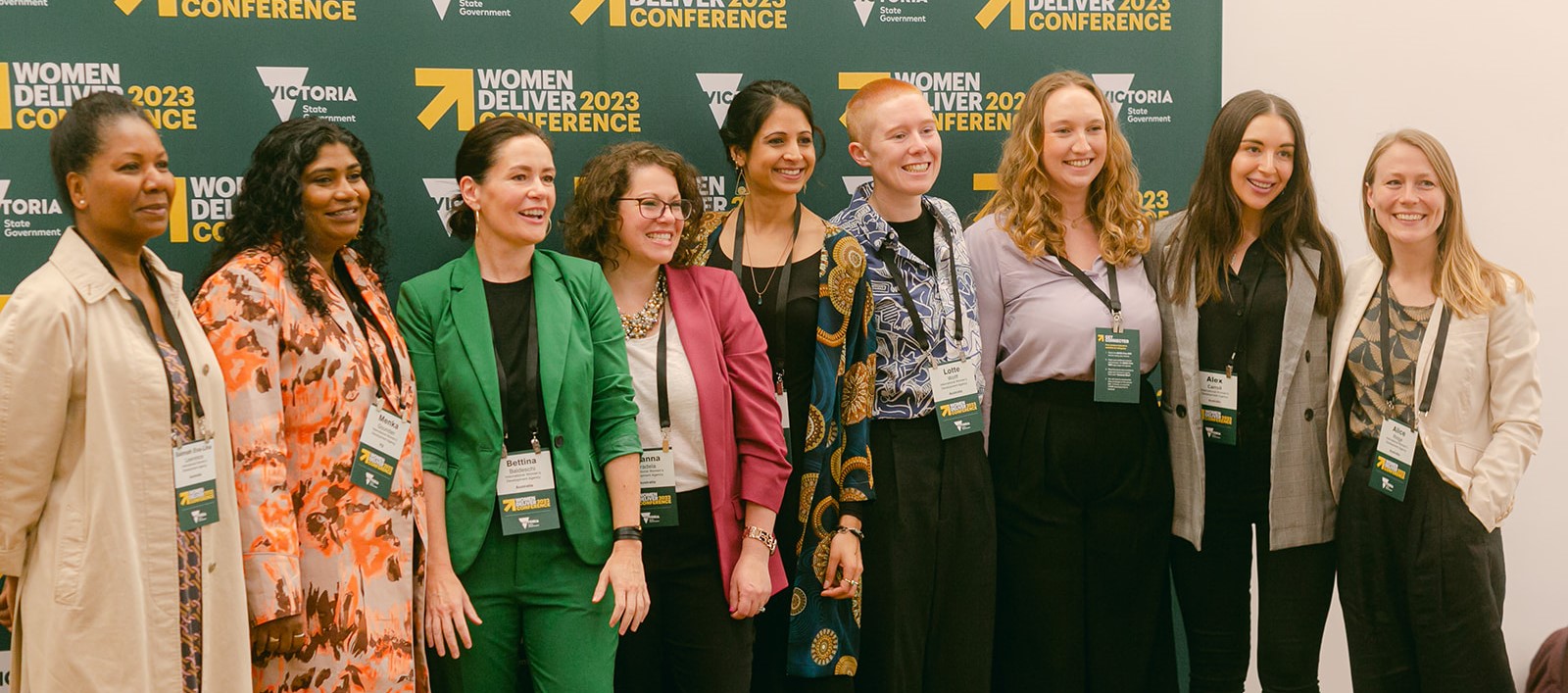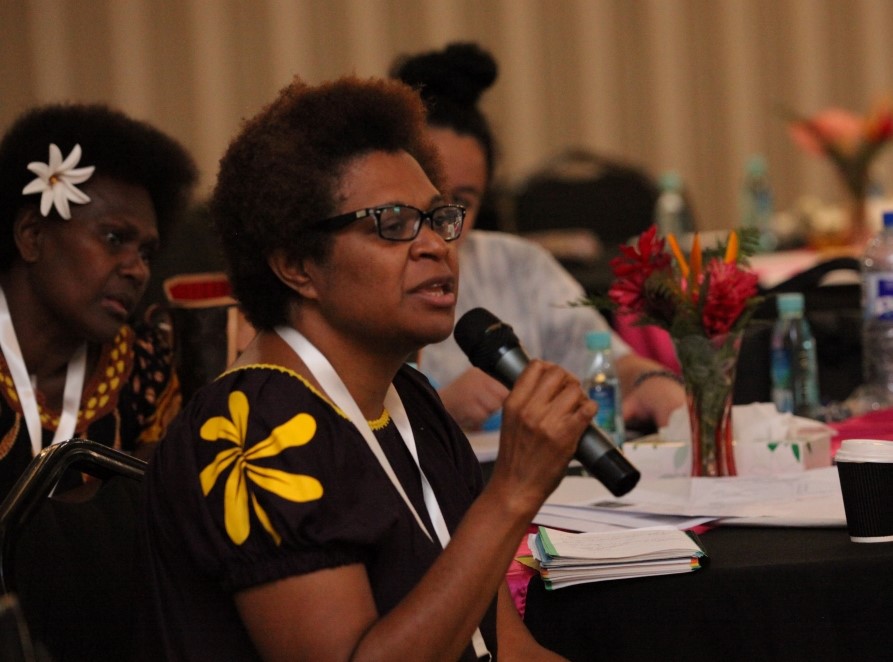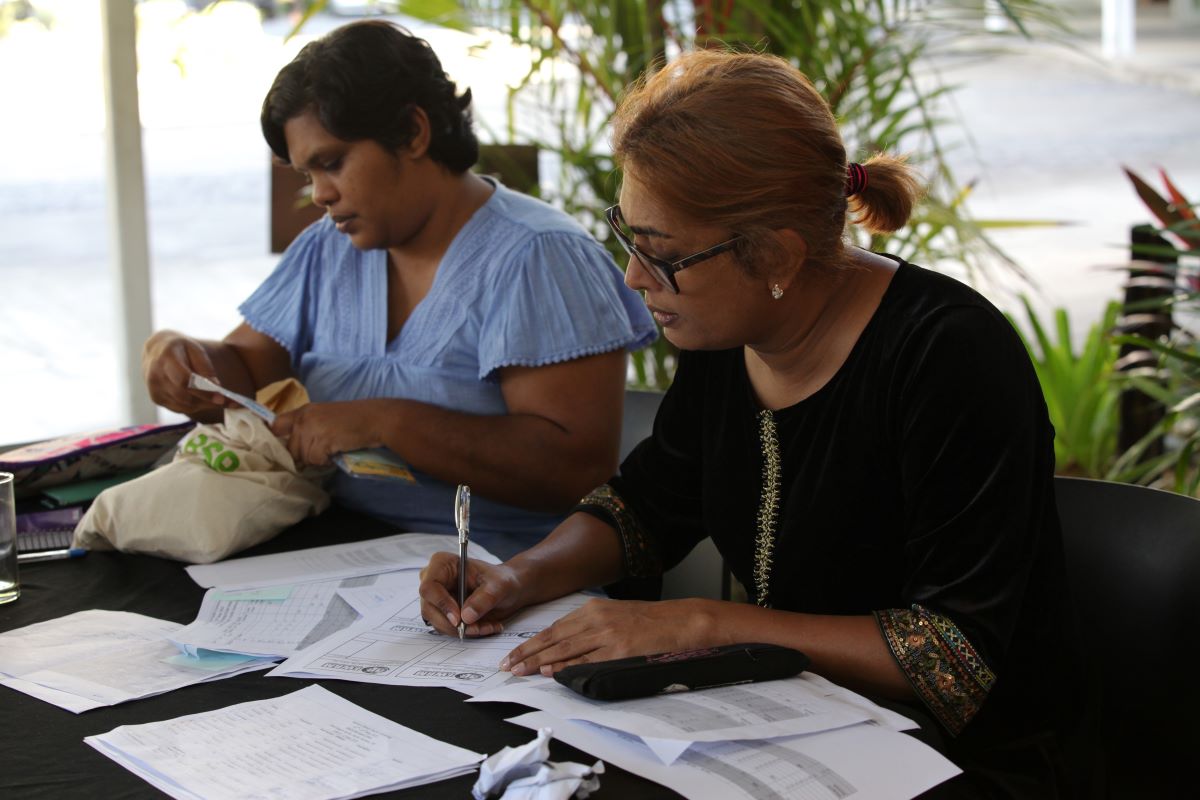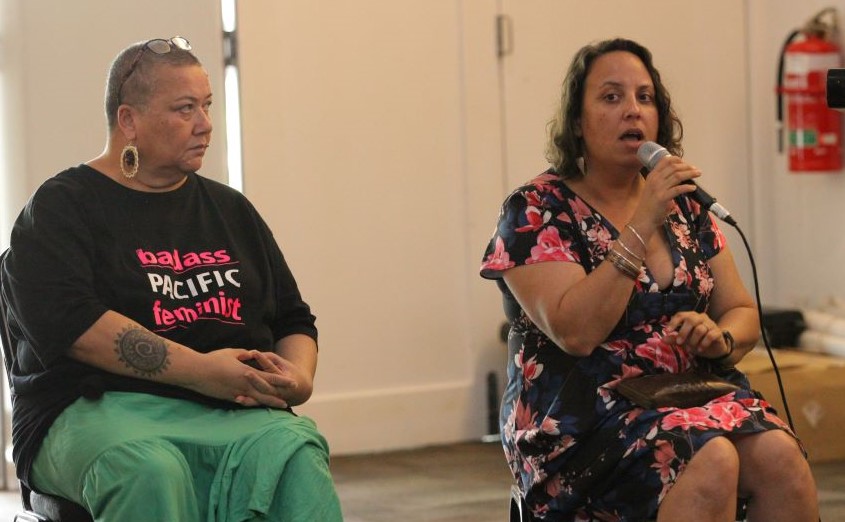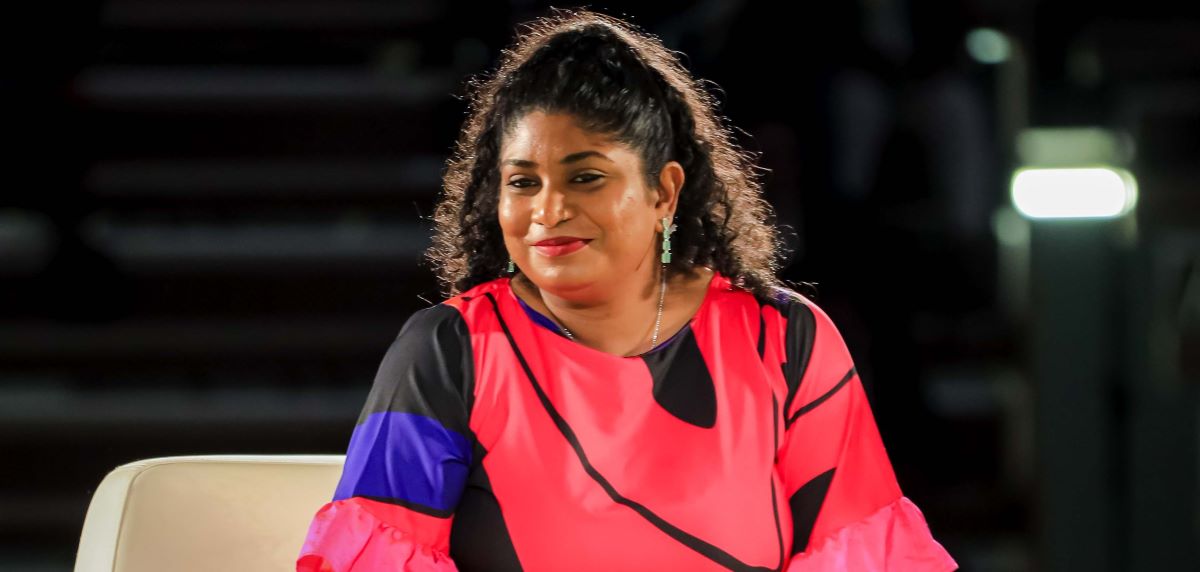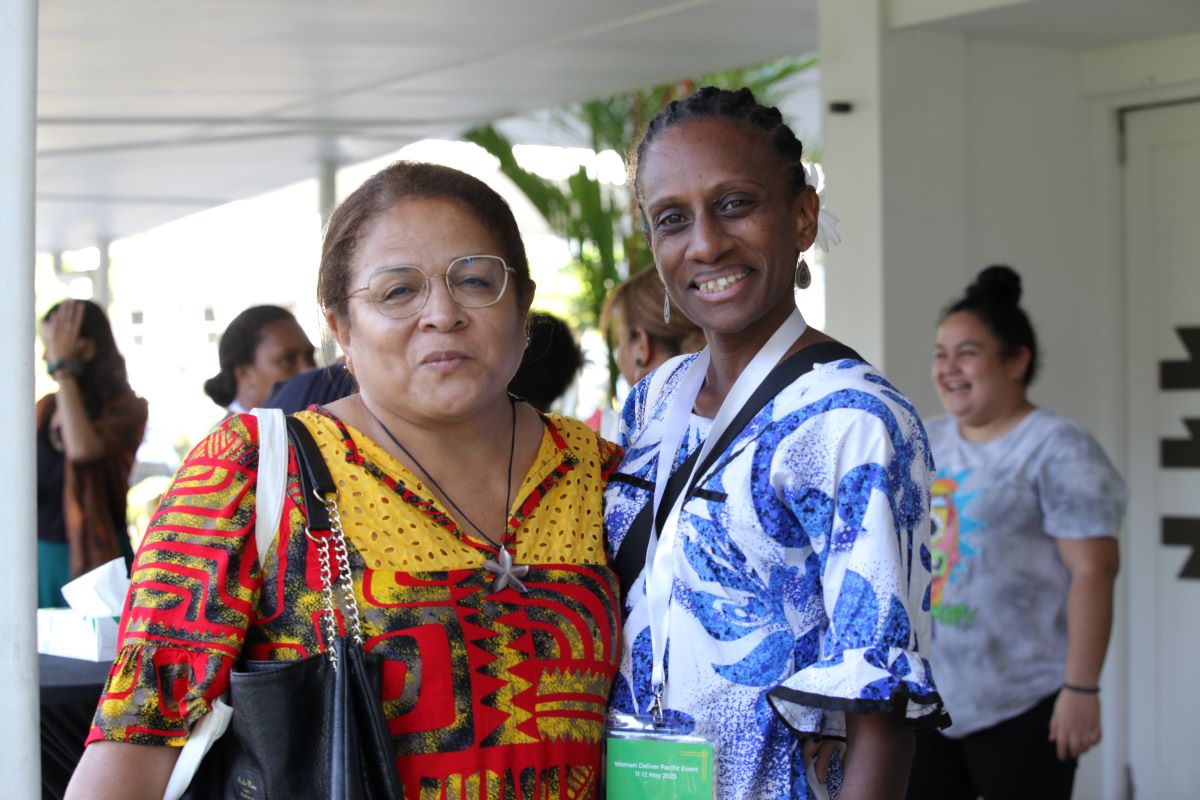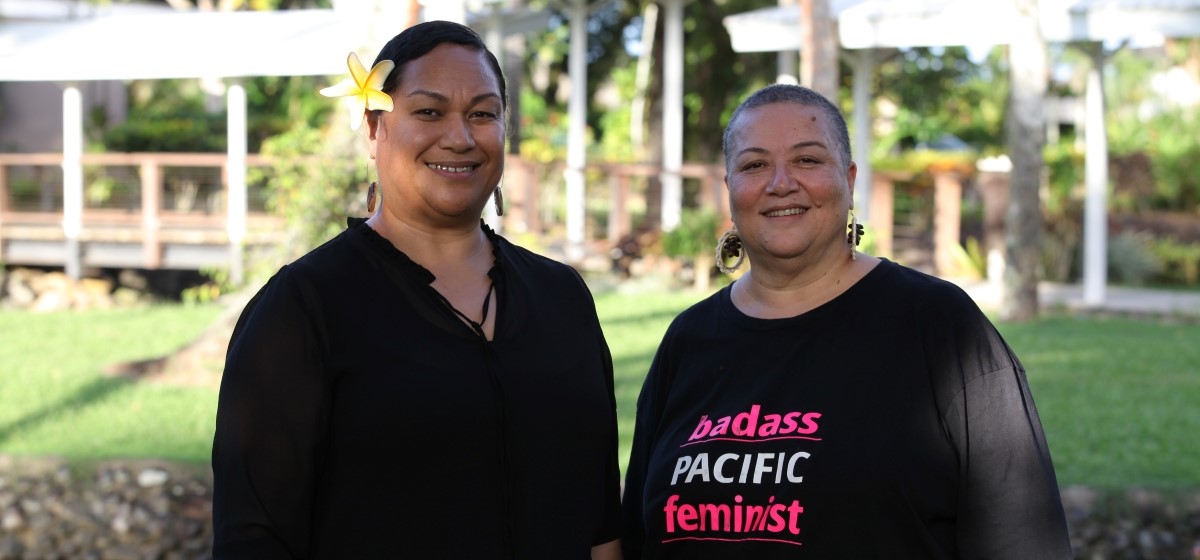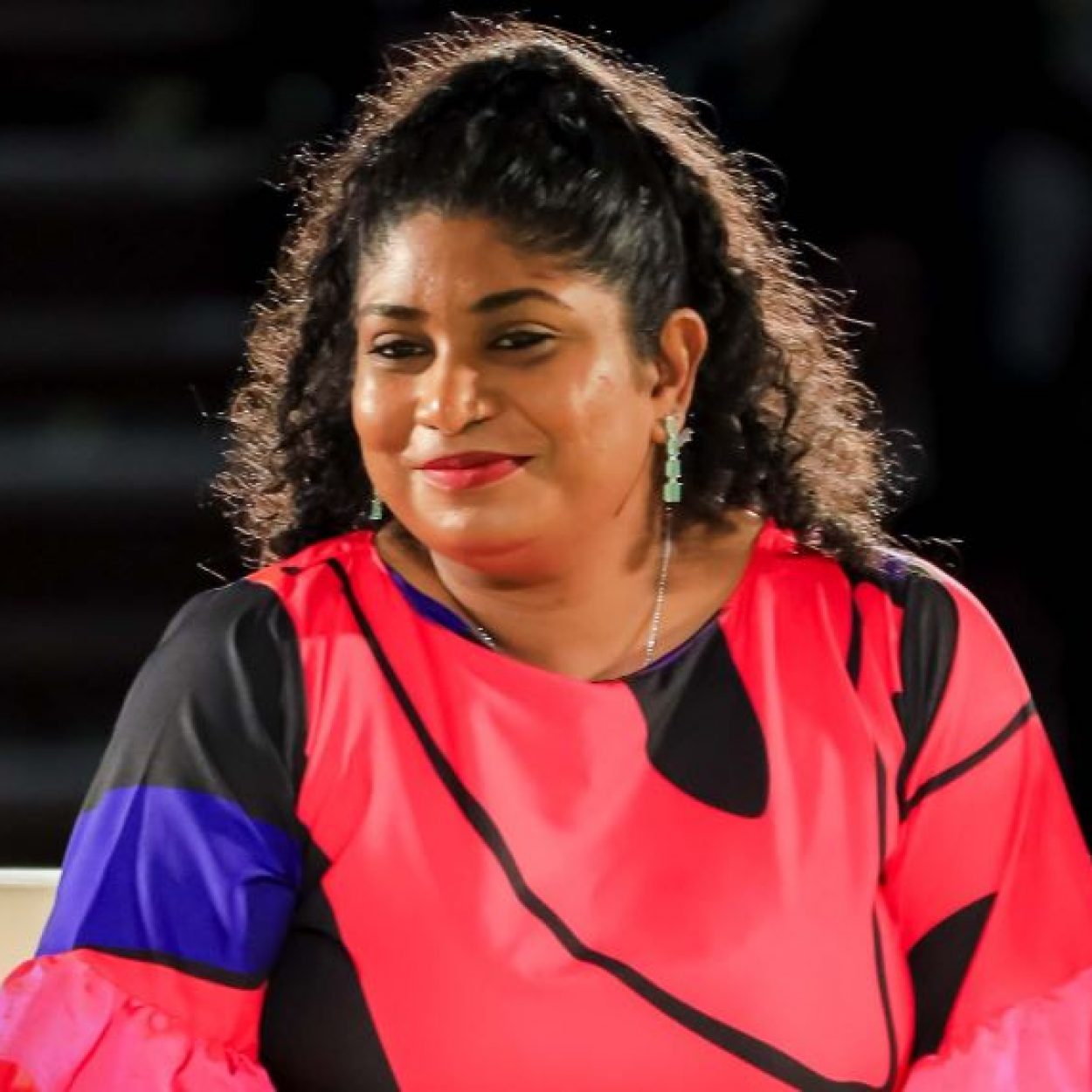
Creating an ecosystem of Co-existence: Oceanic Pacific Women’s experience of Women Deliver 2023.
Our moana, our vast Pacific Ocean is home to the Oceania. In the Oceania our Pacific cultures meet with Australia and New Zealand. Our people have voyaged in the moana for centuries, navigating and charting new journeys sharing oral, drawn and woven histories. In 2023, women from the Oceania continued charting our stories as we navigated across the world to attend the Women Deliver Conference in Kigali, Rwanda in July.
Our journey began from our homes and offices early in the year as we charted a map that would lead us to Kigali. The state government of Victoria enabled the entry point for our women of the Moana as the Regional Convening Partner of the Oceanic Pacific to Women Deliver’s global process. Some of us joined the government of Victoria in the global advisory group to continue pushing for our voices from the southern hemisphere to be heard. International Women’s Development Agency and Diverse Voices and Action for Equality were part of the Women Deliver Global Advisory Group. These partners alongside Department of Foreign Affairs and Trade Australia commenced speaking in late 2022 as part of a program management group to build a movement of women who will take the plight, lived realities and issues of women of the Oceania to Kigali. Thus began an intentional process of cohesive movement building through the Regional Committee that included civil society organizations and activists from across the Oceanic Pacific.
The regional committee met eight time between February and July 2023. These meetings had full agendas that navigated the consultative process to shape and voice the issues of diverse women and girls from the Oceanic Pacific. As part of the process, a gathering of women’s human rights activist from across the Pacific was held in Pacific Harbour, Fiji. An outcome statement outlining the issues and challenges of diverse women and girls from the Pacific was produced. The Pacific activists then joined the Oceanic Pacific regional gathering in Melbourne, Australia alongside women’s human rights activists from Australia and New Zealand. In this first meeting of its kind, Australian domestic NGOs got the opportunity to meet with activists from the Pacific and New Zealand and share their lived realities. These sharing’s were captured in the Oceanic Pacific Women Deliver Outcomes Statement. The disability rights actors in the space also produced an outcomes statement.
In July 2023, the largest delegation from the Oceanic Pacific region travelled to Women Deliver 2023. This power to convene demonstrated by Oceanic women resulted in a strong presence and voice, strong participation in various formats of the conference and recognition of Oceanic Pacific women and girls’ issues in a globally dynamic space since the pandemic. Post the conference, the delegation has continued to learn together and these are some sentiments shared:
We sent a strong, connected delegation to WD2023 in Kigali, whose members spoke to our Regional Outcomes Statement.
The Regional Convening Partnership funded the participation of 26 delegates from the Oceanic Pacific (Fiji, New Caledonia, Aotearoa-New Zealand, Niue, Palau, Samoa, Solomon Islands, Tonga, Papua New Guinea and Australia), including ministers and parliamentarians, as well as representatives from civil society, regional and multilateral organisations, and grassroots advocates.
Additionally, through the processes of regional convening, we were also able to identify and connect with an additional 42 participants who were attending Kigali from the region through avenues other than the funded delegation. We then extended our coordination and communication processes, including a WhatsApp group, to link everyone from the region into a common conversation space.
The total of 68 delegates was the largest ever Oceanic Pacific regional delegation to Women Deliver.
Nine of 11 plenaries at WD2023 had Oceanic Pacific and Australian speakers. We hosted a regional concurrent session, networking session, exhibition booth, and regional delegation networking event. Throughout these engagements, we shared and spoke to the WD2023 Regional Outcomes Statement that had been developed through the regional convening process.
“Everyone realised that the Pacific was there and we were there with a mission”
Civil society representative, Regional Committee debrief.
“The success of the regional process wasn’t just the number of delegates from the region, it was that we were coordinated, highly visible and loud!”
Regional organisation representative, Regional Committee debrief
We connected feminist stakeholders across the Oceanic Pacific region around a common goal.
We engaged a broad, diverse network of civil society and government stakeholders. Many of these stakeholders do not typically work together.
The Regional Convening Partnership provided a timeline and structure for this diverse group to work together towards a common goal.
“It’s hard for these minds [national government, subnational government, and civil society] to meet usually, but [in working together through this process we were] having a common purpose, able to see the big picture”
Civil society representative, Regional Committee debrief
Our collective work created space to build and deepen ties within the regional feminist movement.
The two regional convenings contributed to strengthening ties among participants, who – particularly at the Melbourne convening – represented the diversity of feminist movement actors in the region. This “genuine connection effort” (Program Management Group debrief) deepened engagement between diverse stakeholders and the Oceanic Pacific feminist movement, including First Nations individuals and organisations in Australia and Aotearoa-New Zealand, civil society organisations in Australia and Aotearoa-New Zealand, actors from contested territories and independence movements in Pacific Island countries, and Australian government authorities.
“When working together with common purpose, toward a set of convenings and outcomes, we really get to know each other’s strengths and weaknesses, so are able to work better together. […] This has led to us more explicitly working in new ways […] with Māori women, First Nations women in Australia, and now will work in new ways going forward. […] This change is movement building for feminists in the region”
Civil society representative, Regional Committee debrief
These ties accelerated the development of solidarity and enabled fluid communication.
The opportunity to connect with each other, and build interpersonal as well as organisational connections, supported the developed of solidarity among feminist movement actors.
“Being able to talk to leaders like the Vice President of Palau and Ministers of other countries and be able to talk as equals, with that feminist connection […] Taking issues from the political space into the feminist space and doing this together”
Kigali delegation debrief
Several participants reflected that the Regional Convening Partnership had strengthened intergenerational solidarity, which has been identified as particularly important for Pacific cultures where young people can be marginalised from decision-making.[1] As one participant noted, this “intergenerational support and encouragement” had increased shared understanding of how actors of different generations could meaningfully support each other, and in particular “what support looks like for young women” (Kigali delegation debrief).
Additionally, several Regional Committee members reflected that the experience of working together through the regional convening process has enabled women with disability actors to decide how they will work together. This has translated to tangible movement towards “a new feminist network for WWD [women with disability] gender justice, which [has been] decades in the imagining” (Kigali delegation debrief).
[1] SPC (2015). The Pacific Youth Development Framework 2014-2023: A Coordinated Approach to Youth-Centred Development in the Pacific. Suva; Fiji. Online at https://www.spc.int/sites/default/files/resources/2018-05/Pacific_Youth_Development_Framework.pdf
We brought a strong, coherent, vibrant, highly visible Oceanic Pacific presence to WD2023 in Kigali, where we effectively shared our key messages
We built momentum and buy-in through the Pacific Harbour and Melbourne regional convenings, to arrive at Kigali with a large, coordinated, well organised regional delegation.
“Everyone realised that the Pacific was there and we were there with a mission”
Civil society representative, Regional Committee debrief
“The success of the regional process wasn’t just the number of delegates from the region, it was that we were coordinated, highly visible and loud!”
Regional organisation representative, Regional Committee debrief
Beyond WD2023, we have contributed to a strong regional narrative, a model for future work, and a platform for ongoing collaboration.
During debriefs, there was strong desire to continue this model and experience to build strong and cohesive Oceanic Pacific voices in global advocacy platforms in the future.
“We’ve built something amazing here, that I haven’t seen across any other platform. It’s too good to just let it end with Kigali […] Having prepared this platform and seeing how strong it is, this platform can be used to do the same thing at CSW [… It is] an awesome opportunity that we cannot miss”
Regional representative, Regional Committee debrief.
